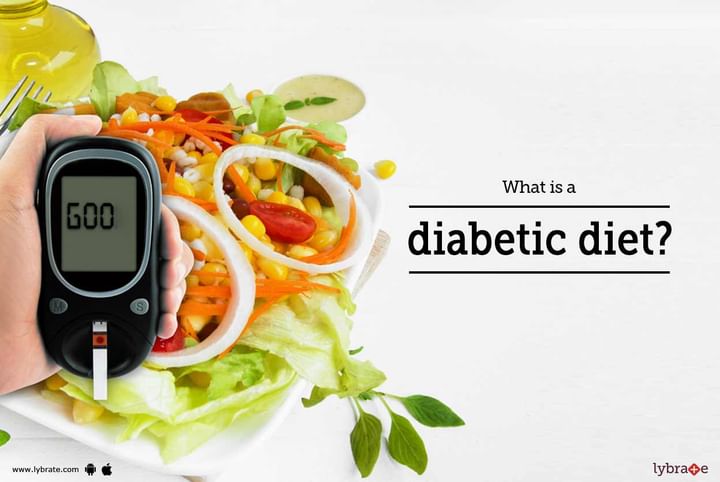What is a diabetic diet?
Diabetic diet ( also known as medical nutrition therapy) is actually a healthy balanced diet that everybody should follow. It doesn't mean living in deprivation, giving up your favourite foods particularly sweets completely or resigning yourself to tasteless food. It just means a balanced diet, not necessarily bland.
It is very important to follow this diet at all the stages of diabetes management, including pre diabetic stage to prevent the onset of diabetes or even to reverse it. For this, you don't have to shed all those extra kilos, just a loss of 5-10% of your initial body weight will do the job.
Basic principles of a diabetic diet
-
Diabetic diet plan should be such that it is high in nutrients, with low fat and carbohydrates.
-
Moderate restriction in calories have to be there if you are overweight or obese.
Carbohydrates-
- Avoid sugars (beverages like soda, energy and sports drinks, coffee drinks and processed foods like doughnuts, muffins, candy bars) and starches (rice, potato, refined wheat flour) as they break down into glucose with digestion. Also these are more likely to cause abdominal obesity ( increased waistline which is more prone for heart disease).
- Eat healthy carbohydrates like vegetables, fruits, legumes, whole-grains and low fat dairy products.
Fat-
- All these oils can be used on a rotation basis each month.
- Avoid bakery products like biscuits, cakes, sweets and fried snacks like chips, french fries, burger, samosas, pakoras, pizza.
- Amount of protein should be such that it provides 15-20% of total calories (approximately 1gm/kg body weight).
Two types of proteins are available -
- Class 1 or complete- e.g. meat, milk, fish, poultry, eggs, cheese and soy. They should provide 50% of daily protein intake.
- Class 2 or incomplete- These generally lack one or the other essential amino acids. Examples- legumes, pulses and cereals. These can be used in different combinations to cover up for the deficient amino acids.
Micronutients - A balanced diet with adequate amount of fruits and vegetables should supply all the required micronutrients. Diabetics do not usually need extra supplementation.
Eat fibre rich food (all parts of plant foods that body cant digest and absorb) like vegetables, fruits, beans, peas, whole wheat flour, wheat bran.
-
Don’t starve yourself. Eat something every 3-4 hours.
-
Eating sugar-
- If at times you feel like eating sugar, take small quantity and avoid any carbohydrate for that day e.g. rice, potato etc that you would normally have taken.
- You can also adjust the dose of insulin accordingly.
- Don’t forget to check your blood sugar after eating sweets.
- Avoid Alcohol
In case you have a concern or query you can always consult an expert & get answers to your questions!
Updates From Lybrate: A Good and healthy Diabetic diet of nutritious products can help in managing the diabetes problem. You can check out diabetic dietary supplements available on Lybrate.



+1.svg)
